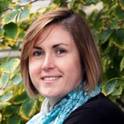| Present | Professor, Western University ‐ Department of Anatomy and Cell Biology | |
|
|
||
| Present | Professor, Western University ‐ Department of Chemical and Biochemical Engineering | |
|
|
||
| Present | Scientist, Lawson Health Research Institute ‐ Children's Health Research Institute (CHRI) | |
|
|
||
